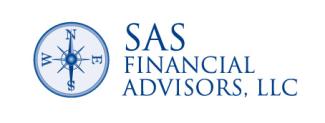Newsletter 04/03/2020
Hello from SAS Financial Advisors,
The SF Bay area is in week 3 of the shelter in place order implemented by its civic leaders along with those of six other counties in addition to the city of Berkeley. Last week was eventful. Coronavirus, the virus that leads to the disease COVID-19, is spreading and NYC has become the domestic epicenter of the outbreak. Diagnostic testing is increasing, but not as rapidly as necessary. Leadership is happening on state and local levels, however decision making at the federal level seems to be lagging and impeding the availability of major resources at a critical time.
Last week Friday, the House passed, and the President signed the CARES Act providing substantial economic aid as a response to economic hemorrhaging caused by the pandemic. The provisions of the CARES Act are numerous and provide aid in broad strokes to many corporations, businesses, both small and large, and to individuals. Below in summary are the highlights and here is an article that thoroughly covers the bill’s benefits and details. https://www.kitces.com/blog/analyzing-the-cares-act-from-rebate-checks-to-small-business-relief-for-the-coronavirus-pandemic/
More info from the Washington Post on how to apply for Coronavirus disaster loans through the Small Business Administration (SBA): https://www.washingtonpost.com/business/2020/03/30/heres-how-get-small-business-loan-under-349-billion-coronavirus-aid-bill/
Pay attention to the individual CARES Act benefits that include a $1,200 deposit in your bank account linked to your social security or tax refund, or a check that will delivered much later in the mail. This benefit is phased out based on income for an individual with adjusted gross income of under $75,000 or a married couple with an AGI under $150,000 receiving the full benefit. Above those levels the benefit is phased out by 5% of the amount of income exceeding the caps until the benefit disappears. In addition, subject to the same income limits and reduction, each dependent child under the age of 17 will receive $500.
Unemployment Insurance will also be impacted with an extension of 12 weeks and an increase in eligible benefits for 4 months of $600/week. This additional weekly $ benefit is greater than the maximum normal benefit available. Also, eligibility criteria are very broad. If you have been laid-off, make sure to apply. Sole proprietors, LLCs and S corps who are not usually eligible are eligible for benefits!
Already, a phase 4 economic stimulus (in this case it would be a stimulus not triage) is being discussed. It is too early to have any visibility into what this might look like.
In the meantime, markets remain volatile with the first quarter losses in all market averages exceeding the quarterly losses in 2008-2009 with the NASDAQ posting the smallest loss.
Bonds had a better quarter. T-Bills (short term US Treasuries) provided slightly positive returns. Long term US Treasury Bonds had outsized returns in the quarter because long term interest rates fell almost 1% to end the quarter at 1.35%. Credit quality was important in determining return because in a panicked and fearful environment the large investors flee risky securities for safety. Generally small investors in this environment sell everything as well. As investors in open end mutual funds redeem their shares, the managers of those funds have to sell the securities owned to generate cash in order to meet redemptions. The more easily sold securities are usually the securities that perform the best in a challenging environment, so they are selling the good stuff. Hedge funds can be in the same position as open-ended mutual funds accept that they can use leverage (borrowed money) making their situation more volatile. The current pandemic caused massive disruption in all markets including bonds. Not surprisingly, the best performing security in the first quarter of 2020 was the security that benefited from volatility! Very, very, risky.
Looking ahead, I expect the stock market to test previous lows of 35% down from the highs of February 2020. Was that just 6 or 7 weeks ago? Stock market gains happen over years and losses happen much quicker. A head spinner! As markets test lows, maybe breaking through to greater losses, we keep your portfolio diversified. As stocks approach fair value on a historical as well as future return basis, we will increase our allocation to the stock market very cautiously. Picking bottoms is impossible - this recent rally, since reaching lows the previous week, has not tempted us. There are safe opportunities in corporate and municipal bonds.
To maintain perspective: Anytime you make a portfolio change, start by accepting that you are guaranteed to have regret. If you sell some of your holdings and the market goes up, you’ll regret having sold anything. If you sell and the market goes down, you’ll regret not having sold more. If you don’t sell and the market goes up, you’ll regret not having bought. The key is to balance a careful consideration of valuations, expected returns, potential risks, and prevailing market conditions, along with all of those potential regrets. If you begin by accepting that there will be regret of one form or another, you won’t feel paralyzed, and you will consider more possibilities than you might have otherwise.
Again, unless your life/financial goals have changed, each of our clients is “steady as she goes.” If you have questions be sure to let us know. Please also inform us if anything has changed since our last update.
We will continue with weekly email updates and keep you informed of further developments. If you have questions or need help, please contact us. We are here to assist you.
Your advisor team,
Ira, Elizabeth and Monique
info@sasadvisors.com
CARES Act at a Glance:
Stimulus checks Likely to be received sometime in May 2020. Check amounts will be based on the most current tax filing the IRS has on file for you. (either your 2018 return, or 2019 if you have done your taxes by now). Individuals who had up to $75,000 in adjusted gross income demonstrated in their most recent tax filing will receive a one-time payment of $1,200, while married couples with AGI up to $150,000 will get $2,400. Additionally, taxpayers will receive an additional $500 for each qualified child (dependent under age 17), while individuals and families with income above their respective thresholds will see their relief payments reduced by $50 for every $1,000 in AGI until phased out completely. Valid social security number necessary, not eligible for those claimed as a ‘dependent’ of another taxpayer. NO reportable income is necessary in 2019 (or 2018) to be eligible to receive.
Unemployment Insurance revisions New weekly benefit increases from $450/week to $600/week (even if $600/week is higher than what you earned weekly while working). UI benefits now available to Self-Employed and independent contractors.
Elimination of the 10% early withdrawal penalty from your retirement accounts (pre-tax IRA, or workplace retirement account) for so-called “Coronavirus-Related Distributions.” Coronavirus related distributions allowed up to $100,000 withdrawal for retirement account(s). Distributions only in 2020 qualify for the CARES waiver of early distribution penalty, ability to stager the distribution over three years of tax filings and the ability to return the distribution to the account(s).
Qualifiers for CARES Act retirement account distribution:
- Have been diagnosed with COVID-19;
- Have a spouse or dependent who has been diagnosed with COVID-19;
- Experience adverse financial consequences as a result of being quarantined, furloughed, being laid off, or having work hours reduced because of the disease.
- Are unable to work because they lack childcare as a result of the disease;
- Own a business that has closed or operate under reduced hours because of the disease; or
- Meet some other reason that the IRS decides to say is OK.
Workplace retirement loans have been increased from $50,000 to $100,000. 100% of vested balance may be used (replacing the previous 50% that was in place prior to CARES).
No RMD Requirement for 2020 (for account holders AND beneficiaries of retirement accounts i.e.: inherited IRA)
- If you already took your 2020 RMD and want to put it back in your account, you can
- *All retirement account distributions, limits, penalties are RETROACTIVE, meaning, even in the event you took an early distribution in January 2020, before the CARES act existed, the same CARES provisions will apply as if they were in place on 1/1/2020
Student Loan payment deferral through 9/30/2020 with NO interest accrual. Borrower must make proactive arrangements with student loan provider to take advantage of this provision. Deferral of payments are NOT automatic and must be requested. Deferral period will not count against eligibility for forgiveness programs. In other words, pausing payments will not have any adverse effect to the borrower.
- All involuntary debt collections on student loans are also suspended through 9/30/2020 including student loan wage garnishments and the reduction of anticipated tax refunds. If you would get a tax refund in this new environment, you are encouraged to file taxes to receive your unimpeded tax return before these relief efforts expire in September 2020.
Small Business Loans Businesses with less than 500 employees can take out loans of up to $10,000,000, or 2.5 times the average monthly payroll costs over the previous year (excluding compensation amounts over $100,000 per person). These loans are eligible for forgiveness if used to cover expenses for payroll, rent and utilizes in addition to employee retention tax credit opportunities.
- Additional benefits include delay of employer’s portion of payroll taxes
- Paycheck Protection Program for small businesses. Loan must be applied for before 6/30/2020 and can have a maximum maturity of 10 years. Must be provided by an SBA lender and will be 100% guaranteed by the SBA lender.
Proceeds of loans can be used to pay:
- Payroll costs
- Group health insurance premiums and other healthcare costs
- Salaries and/or commissions
- Rent
- Mortgage interest (excluding amounts pre-paid)
- Utilities
- Other business interest incurred prior to February 15, 2020
AGI Limit for Cash Charitable Contributions temporarily replaced. The AGI limit for charitable contributions has been lifted from the previous 60% to 100% for “qualified contributions,” meaning, an individual could completely wipe out their 2020 tax liability with charitable contributions. And, any excess over their reported income for 2020 can be carried forward as a charitable donation for up to 5 years. Provision explicitly prevents such contributions to a Donor-Advised Fund or a 509(a)(3) organization to qualify.
Beginning in 2020 the definition of qualified medical expenses (as it applies to HSA, FSA and MSA accounts) expands to include over-the counter medicines. This broad coverage also includes a range of feminine products.

